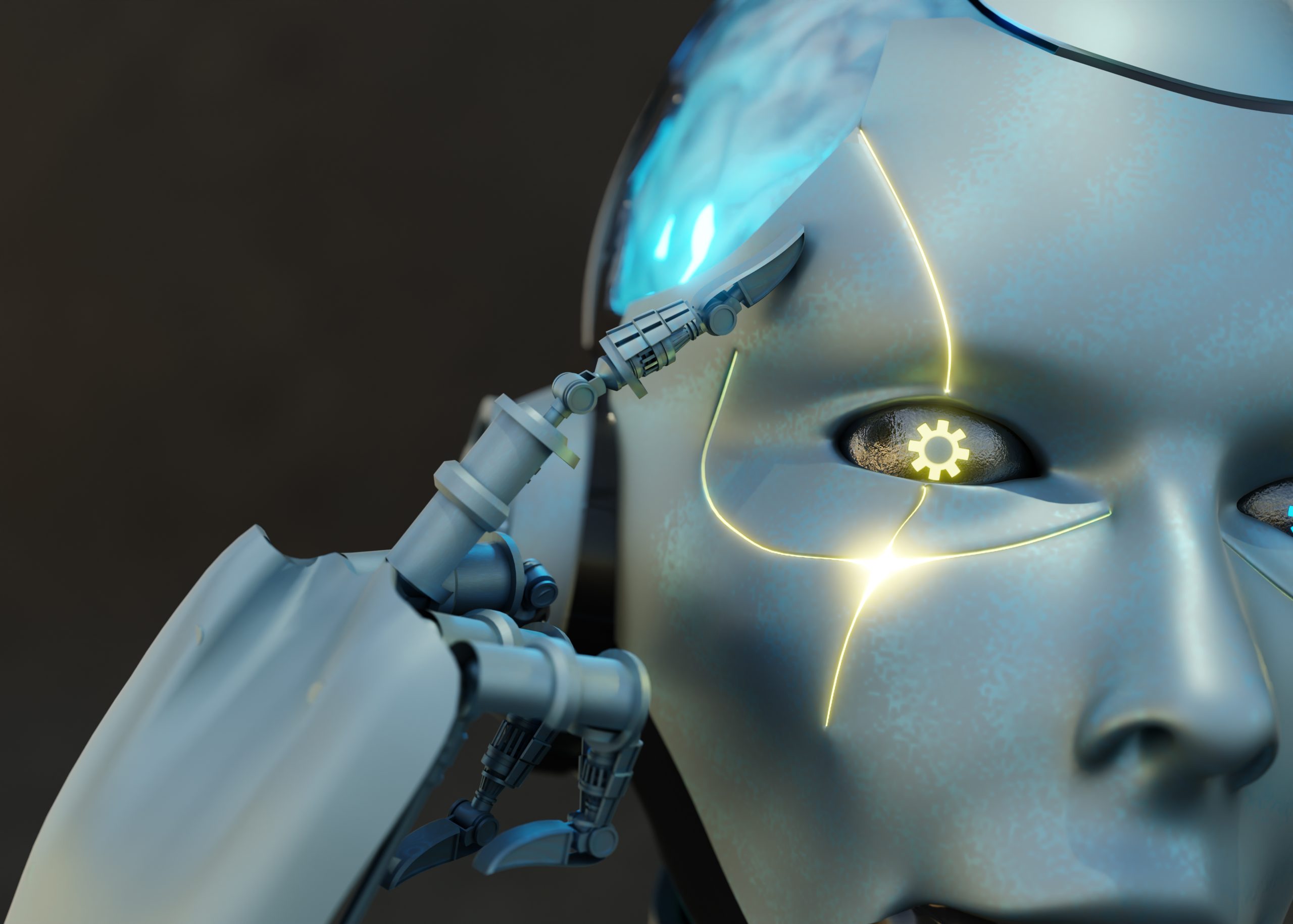Unveiling the legal, ethical and policy implications posed by the use of Artificial Intelligence
ARTICLE

In the present era, advanced technology has woven itself into the very fabric of our lives, rendering the once-cherished trips to libraries for knowledge acquisition a thing of the past. We now reside in a world where the relentless march of technology reigns supreme. Technology, often described as the “practical manifestation of scientific wisdom for the betterment of humanity,” has reached astonishing heights. Among its many marvels, Artificial Intelligence (AI) stands as a shining example. It has revolutionized industries and made significant contributions to fields like healthcare, finance, and transportation. Its ability to process vast amounts of data, recognize patterns, and make informed decisions in real-time has unlocked new possibilities. However, this transformative power also comes with its set of challenges, including privacy issues, bias in algorithms, and potential job displacement. Nonetheless, with diligent research, careful evaluation, and thoughtful policymaking, we can harness the potential of AI while ensuring it operates ethically and responsibly, ultimately leading to a brighter, more technologically advanced future.
AI stands as a versatile tool, an intellectual juggernaut, empowering individuals and organizations alike to seamlessly blend information, dissect data, and wield the gained insights like a sword, all in pursuit of superior decision-making. In simpler terms, it embodies the recreation of human intelligence, accurately processed within the confines of machinery. This formidable force is not some distant vision; it’s already reshaping the very foundations of our existence. In the words of William Gibson,
“The future is already here, but it’s just not fairly distributed.”
AI transcends mere digital assistance; it forges intellectual legacies, orchestrates the precision of robotic surgeons in life-saving procedures, crafts judgments, and quietly permeates our consumer products, highways, and power grids. These diverse manifestations beckon us to ponder a crucial question: should the legal framework for AI cast a wide net, encompassing its myriad applications under a single umbrella, or should it, like a finely-tailored suit, be designed to fit specific niches? Perhaps a hybrid approach is the key, for the journey involves not only legal complexities but a tapestry of ethical and policy concerns as well.
As the renowned Stephen Hawking warned, “The development of full artificial intelligence could spell the end of the human race.” AI’s dominion has left no facet of life untouched. In the words of the President of Russia, the mastery of AI leads to world dominion—a statement holding undeniable truth. AI has infiltrated realms beyond imagination, seeping into the very arena of warfare. Moreover, it is orchestrating a symphony of change in our lifestyles, our workplaces, and our commerce. The specter of AI usurping human roles looms large, as it deftly automates once-human tasks, from customer service to fraud detection, and even outpaces us in certain domains, heralding a seismic shift in the job landscape.
While AI undoubtedly stands as a groundbreaking innovation, its implications remain a subject of comprehensive assessment. The profound impacts of AI reverberate across legal, corporate, governmental, and ethical realms. These impacts can be intricate, manifesting both positively and negatively contingent on their application and regulation. It is essential to recognize that the potential long-term consequences of AI have often been underestimated and overlooked, potentially exposing our contemporary world to a plethora of challenges encompassing threats to safety, authenticity, justice, accountability, and fairness. In the legal sector, AI’s utilization has raised noteworthy concerns. Several instances have come to light where AI systems have provided erroneous information and cited cases that do not exist. This underscores the notion that AI cannot replace legal expertise but should rather complement it, functioning as a catalyst or a supplementary tool.
Expanding its application to automated vehicles and similar innovations introduces additional complexities. It prompts critical inquiries into the adequacy of existing regulatory frameworks in safeguarding public welfare and upholding economic competition. A valid issue pertains to liability in the event of AI-induced accidents, whether it falls under tort liability or consumer protection cases. It’s high time we ignite a policy dialogue, akin to fine- tuning the strings of an ever-evolving symphony, to gauge whether our existing regulations harmonize seamlessly with the dynamic spectrum of AI or if they require a delicate symphony of adaptation. Policymakers must embark on a journey through the complex corridors of policy adjustments, seeking paths that not only trim the sails of cost and promote innovation but also steer the ship of public safety through the tempestuous seas of AI, ensuring a fair and equitable market horizon.
Recognizing this need of hour, it is observed that the Traditional legal norms find themselves ill-suited to address the unique challenges presented by AI, leaving our courts at a crossroads. Specialized regulations are imperative to navigate the intricacies of this technological frontier. While certain legal doctrines, such as those governing intellectual property, product liability, and misconduct, offer partial guidance in the realm of technological advancement, it falls upon our judiciary and legislators to seamlessly integrate AI into our existing legal framework. Comprehensive legislation is paramount, as even a momentary lapse in oversight can yield profound and enduring consequences. Accountability is vital, yet the path to justice is fraught with complexities. Robots themselves cannot be held liable, but their manufacturers certainly can. To bridge this gap, policymakers should consider implementing an “AI certification process.” This stringent monitoring system would not only oversee AI’s actions but also delineate its liability.
In the realm of healthcare, AI now plays a pivotal role in surgeries, drug development, and medical devices. While it mimics human thought processes, it remains distinctly non-human, lacking ethical consciousness. Hence, stringent regulatory frameworks, underscored by checks and balances, become imperative. AI undoubtedly serves as a valuable ally to humankind, yet it should not supplant the human touch.
Our growing reliance on technology across diverse professions carries a looming risk—what experts’ term “skill fade.” When workers overly depend on technology, their proficiency wanes, rendering them less effective when confronted with technological failures. This potential erosion of essential skills should raise alarm bells for our society.
Furthermore, the judicial system has yet to embrace technological advancements, persisting in applying traditional legal doctrines to an intricate and seemingly inscrutable AI landscape. Policymakers grapple with considerable challenges under the current regulatory framework, one ill-equipped to address the complexities of AI. It is high time for a transformative shift in the legal landscape—one that encourages constructive innovation while mitigating potential pitfalls. Crafting effective AI policies demands a consortium of experts to educate government officials on its intricacies. A Stanford University study underscores the need for policies that strike a delicate balance, avoiding undue stringency while addressing critical societal concerns and supporting valuable innovation.
Recent developments even witnessed a Pakistani court experimenting with Chat GPT, marking an ambitious effort to assess AI’s viability in assisting the judicial system in rendering astute legal judgments, all in accordance with established law. In a case involving the bail of a juvenile facing criminal charges, AI played a supporting role, as Judge Amir Munir noted, “AI holds immense potential for exploration within Pakistan’s judicial system.” He emphasized the need for crafting precise questions, substantiated by factual data, to utilize AI’s capabilities fully. This pioneering experiment underscores the imperative for ongoing discourse on Chat GPT’s role in the legal sphere. Tech experts and legal professionals are urged to collaborate in a responsible and efficient manner, ensuring AI complements rather than replaces human legal expertise.
“In a few years artificial intelligence virtual assistance will be as common as the smart phones” – Dave Waters
Conversely, in the United States, a pivotal judgment from the United States Bankruptcy Court Texas underscores the regulation of AI usage in legal proceedings. The ruling stipulates that when any part of a filed document, such as a pleading, has been generated using generative artificial intelligence, encompassing entities like ChatGPT, Harvey.AI, or Google Bard, all attorneys and pro se litigants must affirm that the generated language has been verified for accuracy. This verification process entails cross-referencing against print reporters, traditional legal databases, or other reputable sources. It underscores a critical point: artificial intelligence systems, devoid of allegiance to any client or the rule of law, cannot be deemed factually or legally reliable without human scrutiny. Disregarding these instructions may expose attorneys and pro se litigants to legal sanctions.
This landmark judgment elucidates the dual role of AI—acknowledging its potential utility while imposing limitations to preserve the integrity of court proceedings. It serves as a global precedent, signaling the imperative for all courts worldwide to navigate the delicate balance between advancing innovation and embracing evolving technologies while diligently regulating their application.
In conclusion, AI possesses the potential to be a dynamic catalyst for both economic growth and cultural advancement. Realizing this potential demands a collaborative effort involving industry, civil society, government, and the general populace, each of whom must engage in the evolution of AI and its inherent challenges. Moreover, the government assumes multiple roles in this venture. It should pave the way for public discourse by facilitating vital discussions on AI. Furthermore, it must uphold the safety and equity of AI applications as they mature, while adapting regulatory frameworks to strike a balance between fostering innovation and safeguarding the public interest. Additionally, the government should harness AI to expedite and enhance the cost-effectiveness and efficiency of public service delivery.
AI’s ongoing evolution is poised to impact various facets of public policy, encompassing education, social safety nets, defense, environmental conservation, and law enforcement. As artificial intelligence continues to progress, government entities must enhance their capacity to comprehend and adapt to these transformations.
Practitioners need to ensure that the governance of AI-enabled systems remains in step with AI’s development. This entails making them transparent, comprehensible, and capable of harmonious interaction with humans. Equally vital is the commitment to align AI operations with human values and objectives. These challenges have already garnered increased attention from practitioners and researchers, and this focus must persist.
In the end, the research and advancement of AI offer an opportunity to deepen our understanding of human intelligence. When wielded thoughtfully, artificial intelligence has the potential to complement human intellect, guiding us toward a wiser and more prosperous future.

